Jerusalem Typikon, chapter 32
“Fish we do not dare eat during the whole of Lent, except on the Feast of the Annunciation and Palm Sunday.” [1]
[1]Note: The Typikon states that if a monk “destroys” Lent by eating fish on days other than the ones prescribed, he shall not partake of Communion on Pascha. No such statement is made about laity.
-
Nomocanon
Rule 221
We do not eat fish, except on the day of the Annunciation, according to the divine rule, and on Palm Sunday according to the church rule and the judgment of the most learned elders, and the ancient custom in monasteries and Christian councils. But if the Annunciation falls in Great Week, that is, during Passion Week, we do not eat fish, only oil and wine.
Rule 222
But on Great Thursday, we do not eat fish, according to the 50th rule of the Council of Laodicea. Those who eat fish on the day of the righteous Lazarus, or on Saturdays and Sundays of Lent, as we see many do, they have their judgment and will be forbidden for their love of pleasure. For how dare they allow [fish] on such days, on which the rule of Saint Nicephorus, Patriarch of Constantinople, does not allow it.
-
Kirillo-Belozersky Monastery Rule, 1652 edition
Fish is allowed on all Saturdays of Great Lent, except the Great and Holy Saturday. (Technically, Passion Week is not a part of Great Lent.)
-
Domostroy (“order of the house” or “household rules”) [2]
“During Great Lent, [there should be] on the table black radish, horseradish, cabbage, strong brine, and various vegetables - whatever God grants. On some days, depending on guests - caviar, and fish - hot-dried, cold-dried, cooked; and fish soup with hot-dried, smoked, cooked fish, and various entrails [3], and dried German herring, with smelts; and also [fish] in brine, in pies, with porridge, and with vegetables, and various smelts; and various pies, and porridges, and pancakes, and kissel - a good hostess has an abundance of various lenten foodstuffs.”
[2]Note: Domostroy is a 16th-century book written for wealthy boyars and merchants. A hostess not belonging to one of these classes should not feel despondent if she fails to serve the full spread of dishes to her guests.
[3]Note: It is likely that what is meant by entrails here are fish heads and bones that are used in the making of fish stock, not fish guts.
-
The Solovky Rudder, 1493 edition [4]
“On Saturdays and Sundays [of Lent], we eat fish twice a day; and we drink three cups at each meal.”
“One who is ill, eats fish, except on Wednesdays and Fridays - even during Theodore’s Week [id est, the First Week of Lent], and Palm Week [id est, Passion Week].” [5]
“If a woman is post-child [id est, nursing], may she eat fish…”
“If it is the day of the Finding of the Head of John the Baptist, or the Forty Martyrs [of Sebaste], or of Aleksey the Man of God - if not during Theodore’s Week [First Week of Lent], then eat fish; if [one of these feasts falls] during Theodore’s week, then do not eat [fish].”
[4]Note: The Solovky Rudder is not a rule of the Solovky monastery, but rather a rule for laymen.
[5]Note: In other words, those who are ill may eat fish during all of Lent and even the First Week and Passion Week, except on Wednesdays and Fridays.
-
Last but not least, this is a reader-supported publication; please share it with your friends and family! And if you are saving a lot of money by fasting, please consider becoming a paid subscriber - it is only $5 per month ($4 if you subscribe for a year) - about the price of three small cans of tuna at Walmart.
May your Lent be fruitful!


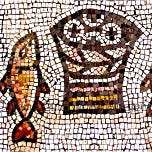



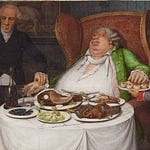


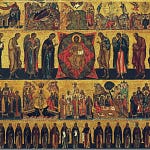
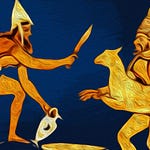

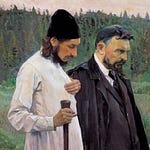

Share this post